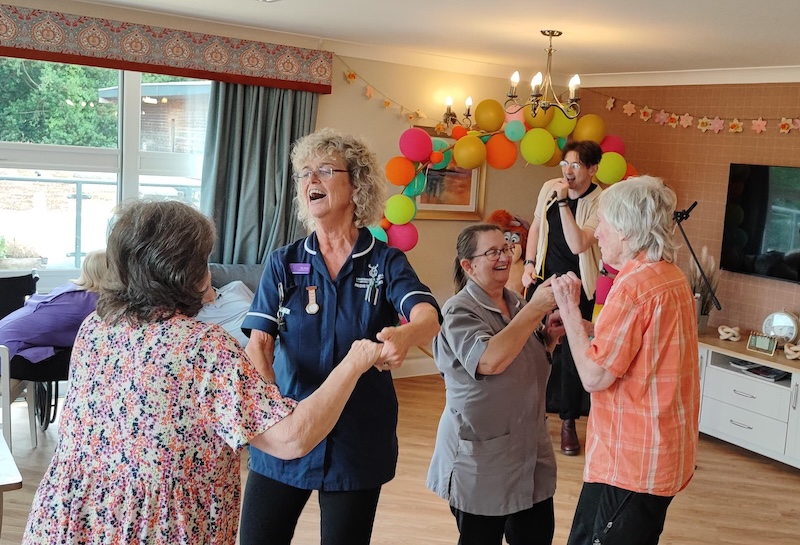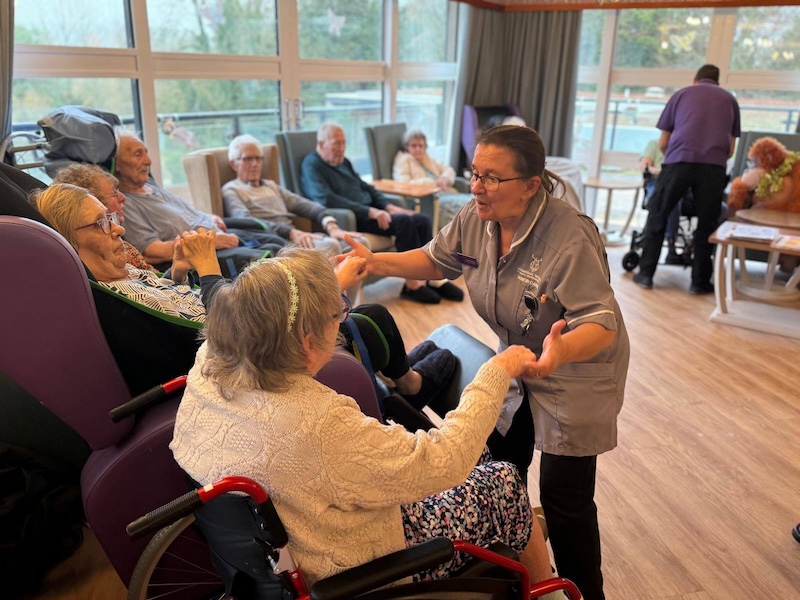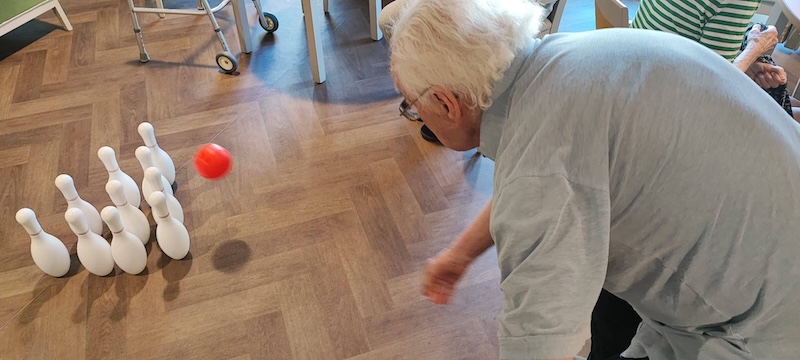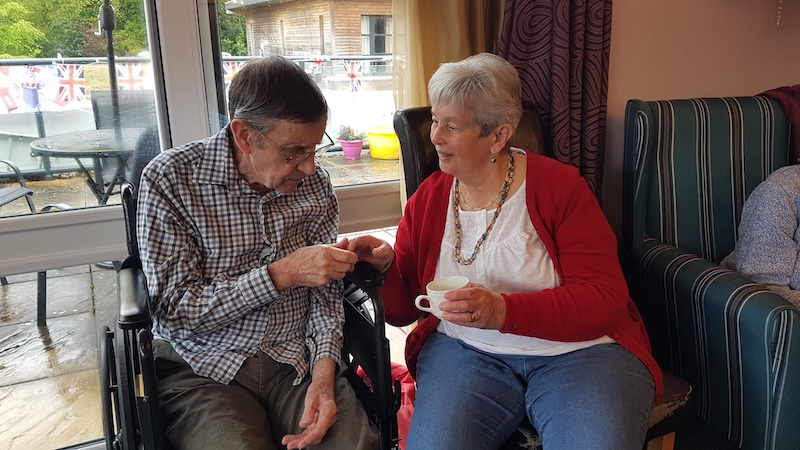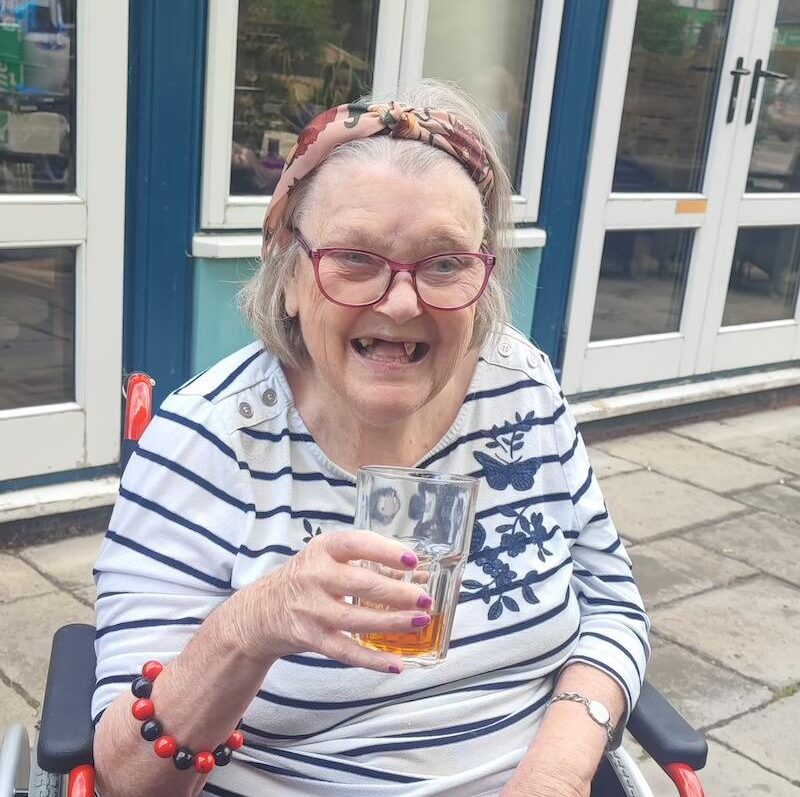The Importance of Meeting Nutritional and Hydration Needs in a Care Home

Understanding the Role of Nutrition and Hydration in Later Life
As we grow older, our bodies experience natural changes that can affect how we eat and drink. Factors like reduced appetite, slower metabolism, or medical conditions can influence both what we consume and how our bodies respond to it. Within a care home environment, this makes meeting residents' nutritional and hydration needs not only important for their comfort but essential for their overall health and well-being.
In a care home, nutrition and hydration needs go far beyond simply serving meals or offering a cup of tea. Regular nutrition and hydration assessments, paired with an understanding of each person’s history, preferences and health needs, are vital to delivering the right care.
Why Nutrition and Hydration Must Be Personalised
Every individual has a unique set of dietary requirements, and it is the job of the care team to cater to this. Some may need food that is high in protein or fibre to prevent weight loss or manage chronic conditions like heart disease or high blood pressure. Others might require softer foods due to swallowing difficulties or an altered menu aligned with their medical needs or background. For people with conditions such as dementia, familiar or favourite foods can provide comfort, promote independence, and encourage residents to eat more consistently.
Personalised support begins with an initial assessment when someone moves into the home. This helps care staff and kitchen teams understand not only the nutritional and hydration needs of each resident but also their preferences. From there, plans are put in place to ensure that food and fluid intake is regularly monitored and that any changes in appetite, body weight, or health are picked up quickly.
The Emotional and Social Role of Mealtimes
In many care homes, the dining experience forms the heart of daily routines. Mealtimes are more than just opportunities to eat—they offer structure, familiarity and a chance to connect. A pleasant environment, welcoming dining areas and consistent routines help residents feel at ease, making it more likely they will enjoy their food and stay nourished.
Eating suitable and nutritious food together can be a source of great joy. Residents often look forward to the social aspect of meals, where conversation flows and friendships form. These shared moments not only help lift spirits but can also improve food and hydration intake, as some residents may feel more motivated to eat when surrounded by others doing the same.
Care teams work to make each dining experience as comfortable and positive as possible. This includes offering assistive equipment for those who need support with daily living skills, such as adapted cutlery or plate guards, helping residents maintain as much independence as possible during mealtimes. These small yet thoughtful tasks promote independence and uphold each person’s dignity.

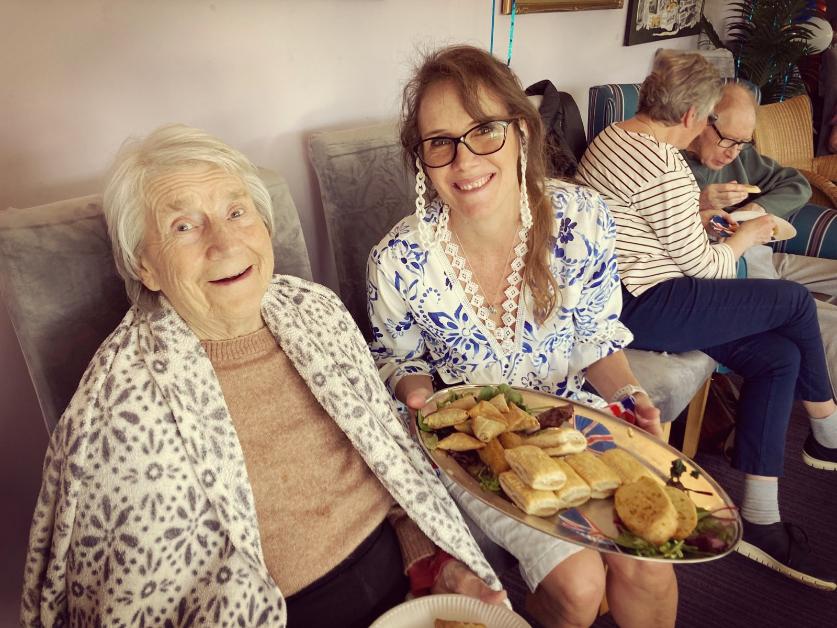
Recognising the Signs of Poor Nutrition or Dehydration
Maintaining adequate nutrition and hydration can be challenging for older people, especially those with complex care needs. Without careful monitoring, poor nutrition and unnecessary dehydration can lead to serious health concerns such as fatigue, confusion, infections, or increased risk of falls. Over time, these issues can reduce a person’s ability to remain independent and enjoy a good quality of life.
Symptoms such as sudden weight loss, dry mouth, dizziness, or a drop in mood may be signs that nutritional or hydration needs aren’t being met. Staff are trained to recognise these early warning signs and take appropriate action quickly, using an assessment and MUST score. This might include increasing hydration intake, offering more energy-dense meals, or involving a health care professional to assess whether dietary supplements or other interventions are needed.
Catering for Diverse Tastes and Backgrounds
Good nutrition doesn’t mean compromising on taste or tradition. Meals that reflect a resident’s cultural background or lifelong eating habits are both comforting and enjoyable. Providing a varied menu that includes both everyday favourites and new dishes keeps things interesting and supports a balanced diet.
Meals made with fresh vegetables, lean proteins, dairy products and wholegrains offer a great source of essential vitamins and minerals. At the same time, it’s important to give residents the freedom to choose what they eat. Allowing people to express preferences—whether it’s for a full cooked breakfast or a simple bowl of cereal—helps uphold their rights and autonomy.
Many homes also mark cultural events with themed meals and activities, using food to bring people together in celebration. From authentic Chinese food to homemade pancakes, these moments provide fun, stimulation, and a powerful link to the world beyond the care home.
Supporting Hydration Every Day
Hydration is equally as important as nutrition. As people age, their sense of thirst can decrease, making it easier for dehydration to set in unnoticed. Encouraging residents to drink regularly throughout the day is vital in preventing the health problems associated with low fluid intake.
A hydration assessment is an ongoing process and includes monitoring how much residents drink, noticing changes in behaviour or health, and making sure drinks are always accessible and fresh. Some residents may prefer warm drinks like tea or coffee, while others enjoy fruit juices or water.
Having drinks available at all times, especially during activities and mealtimes are simple yet effective ways to maintain good hydration. For those at risk of dehydration from complex conditions or medication side effects, specific care plans are put in place to support their needs.
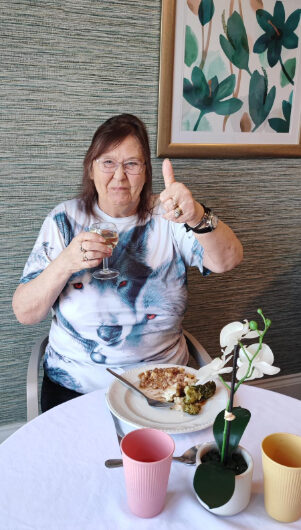
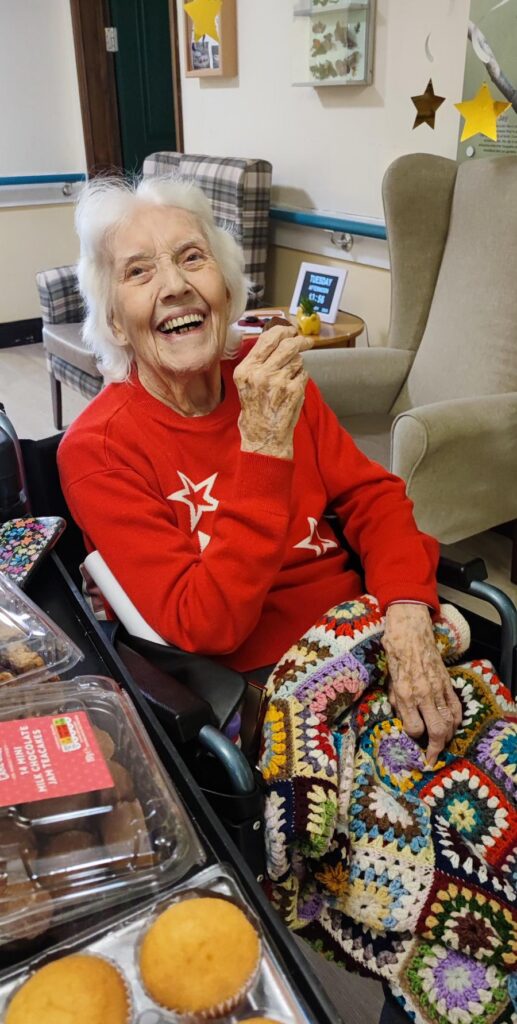
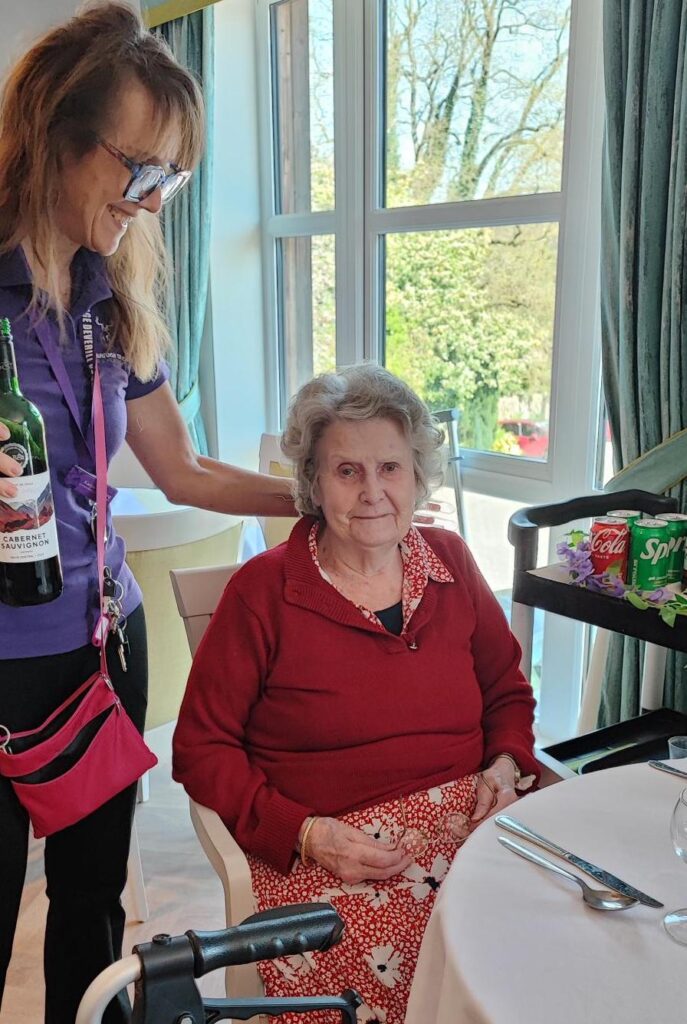
Working Together to Support Health and Well-being
Meeting residents’ hydration and nutritional needs is a team effort. It involves collaboration between care staff, chefs and activities coordinators - everyone has a role to play in making sure residents feel supported, well-fed and valued.
Regular reviews of each person’s nutrition and hydration help to track progress and respond to any concerns. This might involve adjusting menus, introducing dietary supplements, or increasing fibre to support digestion. By staying responsive to residents' needs, care teams can make sure that people not only receive adequate nutrition but also thrive in their environment.
It also leads to the care home building trust with residents' loved ones. Relatives want to enjoy peace of mind that their loved ones are being cared for properly, and seeing that someone enjoys their meals and has access to healthy food and drink around the clock can offer enormous reassurance.
Putting Meals at the Heart of Great Care at Longbridge Deverill Care Home
At Longbridge Deverill House and Nursing Home, we believe that good food and drink are central to a happy, healthy life. Our team is dedicated to meeting the individual nutritional and hydration needs of each resident, taking the time to understand what matters most to them—from their favourite foods to personal preferences shaped by needs, culture or routine.
Whether you require residential care, nursing care, dementia care, respite care or palliative care, we understand the importance of providing a rich and meaningful lifestyle that maintains your independence and dignity. When residents enjoy their meals, they have the freedom to enjoy them wherever they feel most comfortable - whether this is among friends in our dining room, privately in their bedroom or in our garden when the weather permits.
Whether it is through our tailored care plans, moments of connection during a meal, or the simple joy of sharing a pot of tea with others, we aim to make every dining experience count. If you're looking for a care home where meals are created with care and residents are supported to live well, we’d be delighted to tell you more about Longbridge Deverill. Please get in touch to arrange a visit and see how we put food, hydration and heart into everything we do at our care home in Warminster.
